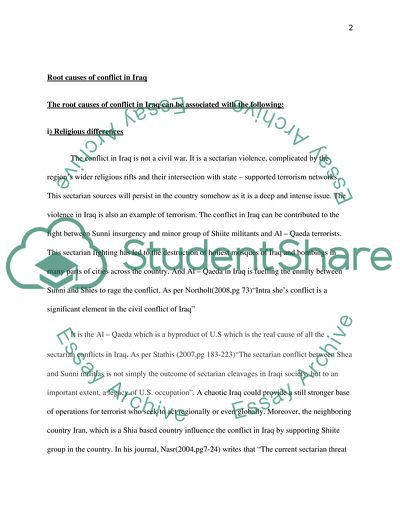Cite this document
(“International Relations - Iraq Conflict Essay Example | Topics and Well Written Essays - 2500 words”, n.d.)
International Relations - Iraq Conflict Essay Example | Topics and Well Written Essays - 2500 words. Retrieved from https://studentshare.org/politics/1584578-international-relations-iraq-conflict
International Relations - Iraq Conflict Essay Example | Topics and Well Written Essays - 2500 words. Retrieved from https://studentshare.org/politics/1584578-international-relations-iraq-conflict
(International Relations - Iraq Conflict Essay Example | Topics and Well Written Essays - 2500 Words)
International Relations - Iraq Conflict Essay Example | Topics and Well Written Essays - 2500 Words. https://studentshare.org/politics/1584578-international-relations-iraq-conflict.
International Relations - Iraq Conflict Essay Example | Topics and Well Written Essays - 2500 Words. https://studentshare.org/politics/1584578-international-relations-iraq-conflict.
“International Relations - Iraq Conflict Essay Example | Topics and Well Written Essays - 2500 Words”, n.d. https://studentshare.org/politics/1584578-international-relations-iraq-conflict.


